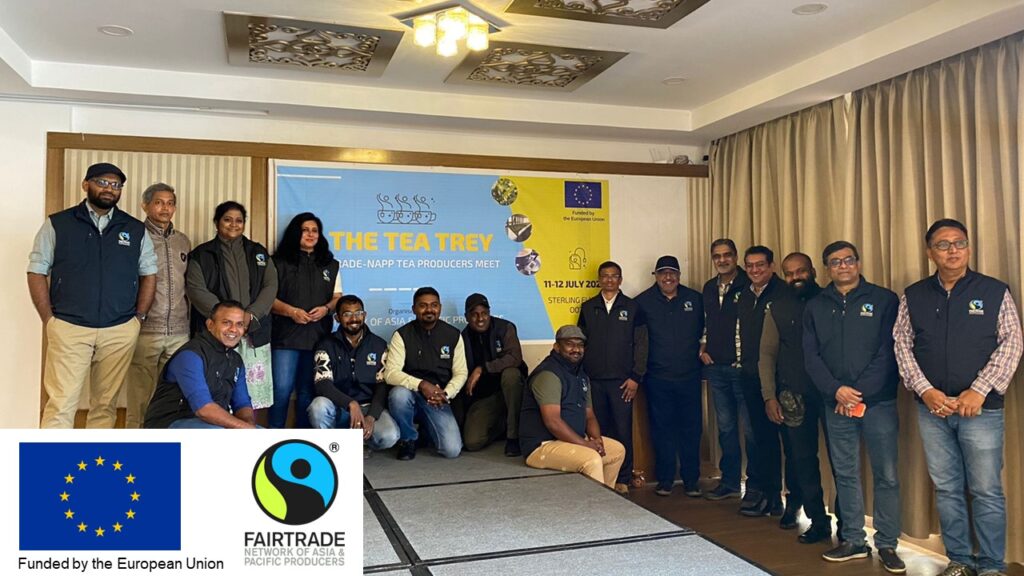
Tea is the world’s most popular drink (after water), with about 70,000 cups drunk every second!
From its origins as an ancient medicinal crop in China, tea has spread far and wide. The multi-billion-dollar tea industry employs millions of people but working conditions and earnings for the producers are often dire.
It is one of the key commodities of Fairtrade NAPP with 80 tea producers across India, Sri Lanka, Vietnam, and China. Fairtrade actively works with tea plantation workers and smallholder farmers to bring Fairtrade tea to consumers around the world.
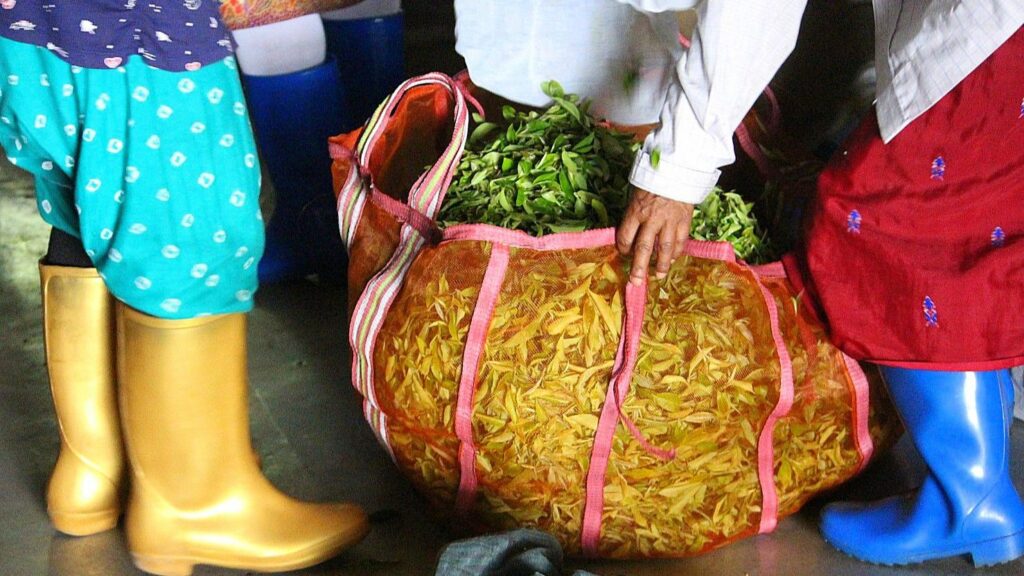
It is one of the key commodities of Fairtrade NAPP with 80 tea producers across India, Sri Lanka, Vietnam, and China. Fairtrade actively works with tea plantation workers and smallholder farmers to bring Fairtrade tea to consumers around the world.
The event brought together 39 participants from Hired Labour plantations and small producer organisations from across Sri Lanka and India to discuss and work together on the challenges they face on the market front, sales, climate vagaries, among others.
The main objectives of the event was to:
- 1. Introduce and facilitate networking opportunities between tea producers of different NAPP regions and National and Fairtrade Marketing Organisations.
- 2. Enable Tea Producers to exchange experience, cross-learning, and exposure visits.
- 3. Promote the formation of NAPP Tea Network to equip for better negotiation within Fairtrade in favour of the Product.
- 4. Keep abreast of evolving market requirements and develop strategies to promote Fairtrade Tea; both exports and domestic sales.
Day 01 Proceedings
Welcome Address and Key Note Speech
Day 01 started with a welcome address by Sanjeet Singh Khurana- CEO, Fairtrade NAPP who also briefed the participants on the objectives of the Tea Networking Meeting.
The Keynote Speech was delivered by Supriya Sahu – Principal Secretary, Environment, Climate Change, and Forests, of the Government of Tamil Nadu. She spoke of the journey of Indcoserve in the Fairtrade system and the importance of addressing the deleterious effects of Climate Change. She also spoke of the importance of adopting technologies to bring down the cost of Production and improve profitability.
Innovate or be left out was the key message!
She spoke about how Indcoserve was innovating to stay in business and one such technology was the leaf quality inspecting machine which used sensors and AI to segregate the quality of leaves before they entered the factory. She appealed to Fairtrade, to support and promote sales of Fairtrade Tea, produced by Small Producers organisations.
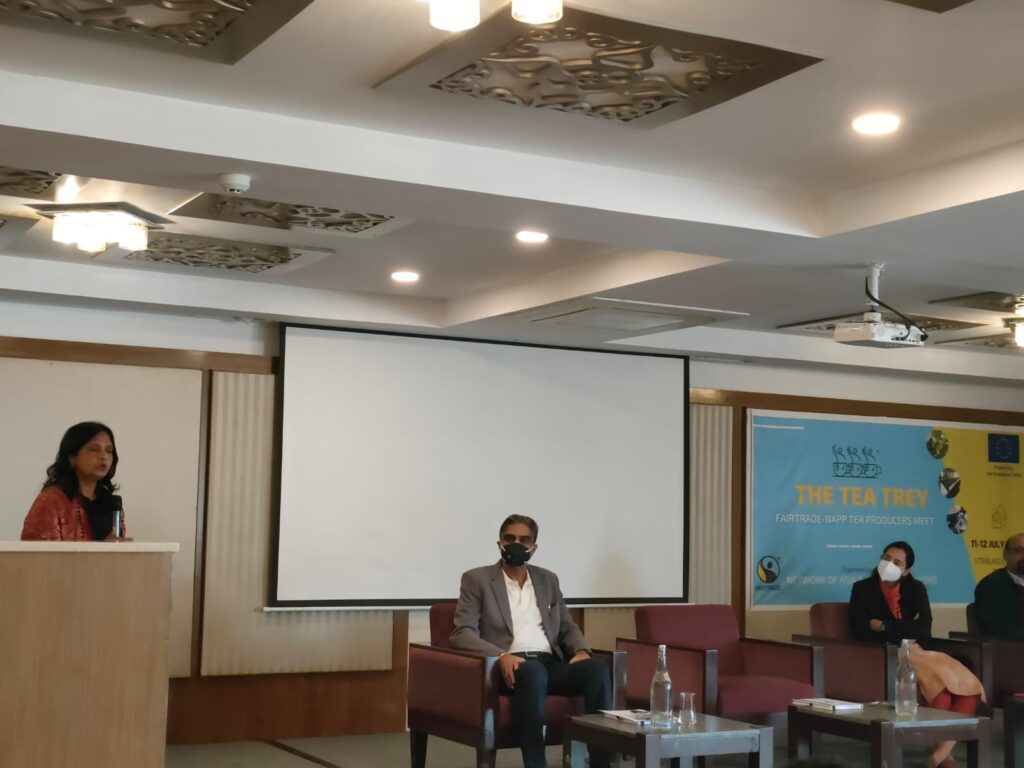
Session on Climate Change: (Specific to climate adaptive practice in Tea)
The first technical activity was conducted by Dr. Arivudai Nambi Appadurai – Director & Strategy Head of the Climate Resilience Practice of World Resources Institute (WRI) on Climate Change which is specific to climate adaptive practices in Tea cultivations. He spoke about climate change and its adverse effects with respect to agriculture in general and specifically to plantation crops like tea.
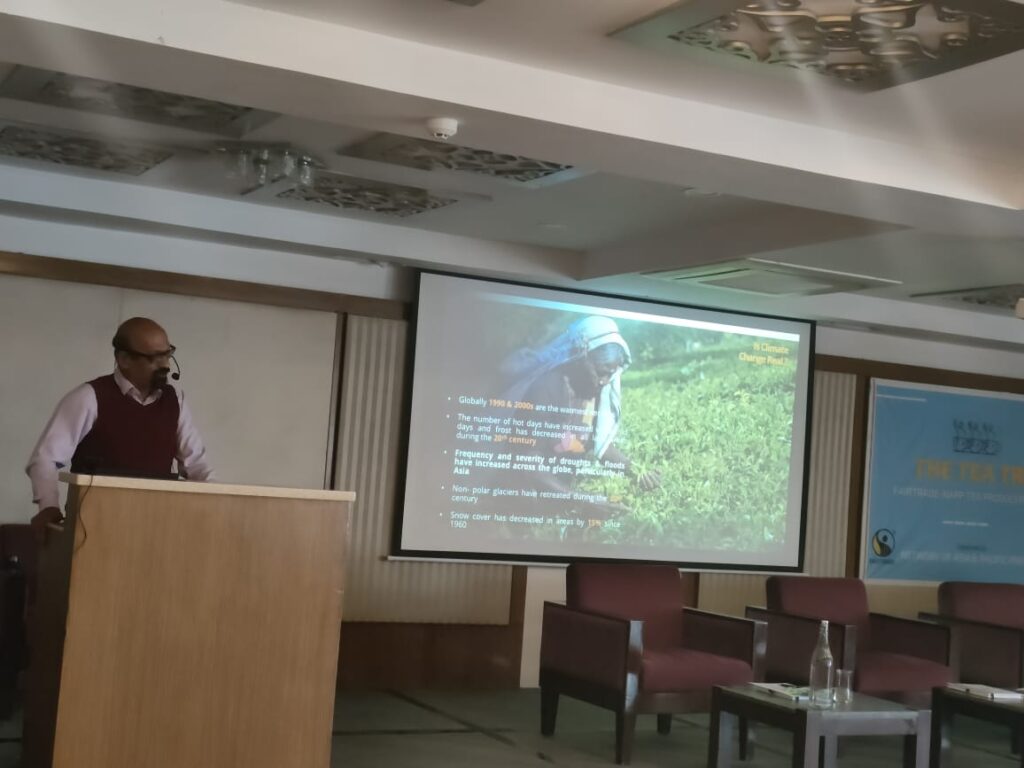
Discussion on Revised Fairtrade Tea Standards
An interactive session on the revised tea standards was conducted by Mr. Subhra Tudu of NAPP and Ms. Oksana Forkutsa, Senior Project Manager Standards from Fairtrade International who joined online to elaborate on the new changes and requirements. Fairtrade Approach on HREDD was elaborated and how it has been incorporated in the framing of the revised Tea Standard was explained to participants. There were many queries raised by the participants and clarifications were provided during the session.
Conception and ideation of the newly proposed Product Network for Tea Discussion took place in the forum. The objective, structure, governance & funding was explained via a presentation by Ranjith Kumar ( Regional General Manager of South and Central Asia ) and Arutselvan (Program Consultant from Sri Lanka). The producers’ inputs were solicited, obtained, and incorporated into the Terms of Reference of the Tea Network structure. The ToR. has since been circulated among the producers and the feedback is awaited. Once this is done the structure will be put in place, and the activities of the network will commence.
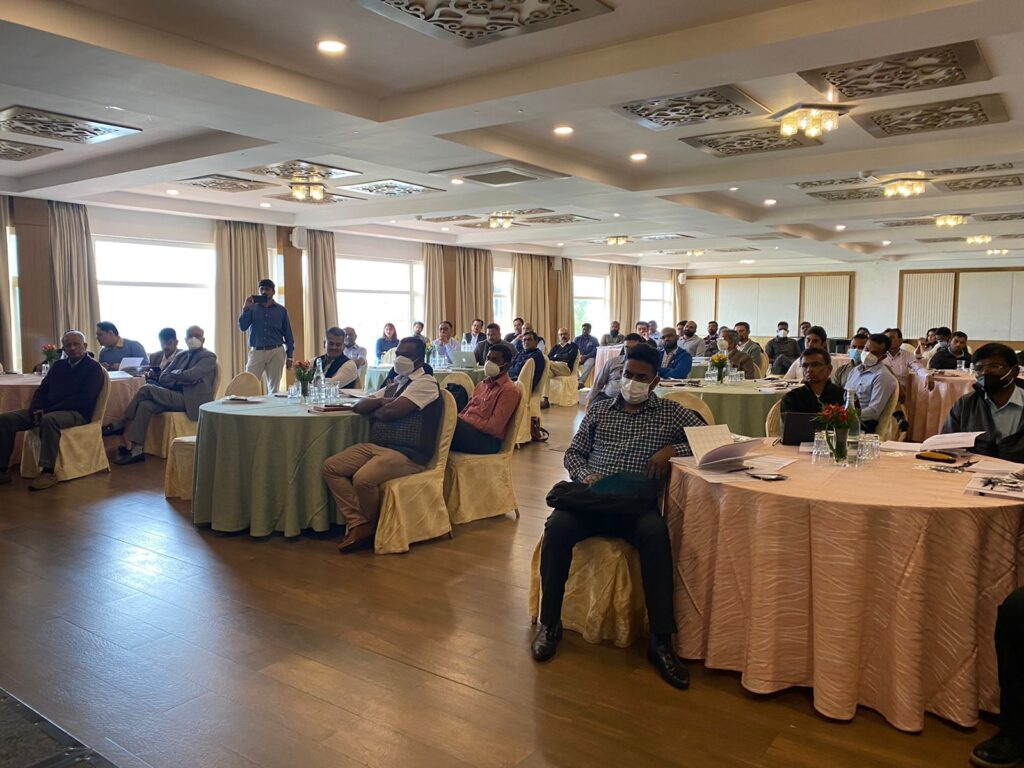
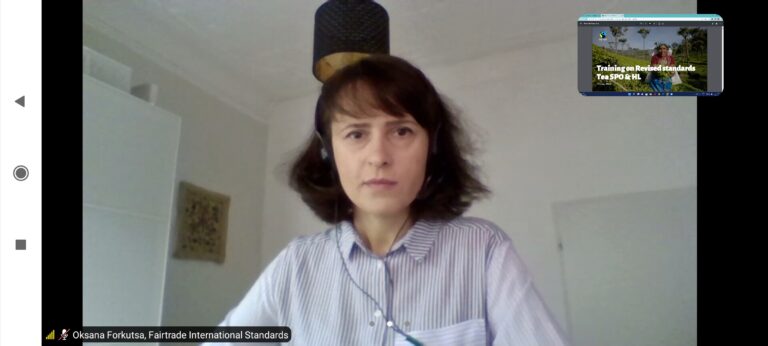
Marketing Sessions on Current Market Trends Opportunities and Way Forward by National Fairtrade Organisations
The afternoon session was followed by presentations from National Fairtrade Marketing Organisations ( Australia and New Zealand, Italy, France, Netherlands, Germany, United Kingdom, India, Canada and Korea ) who spoke on the current market trends, challenges , and opportunities in different export markets.
Suggestions were also made on how markets should be approached based on the marketing experience of the producers.
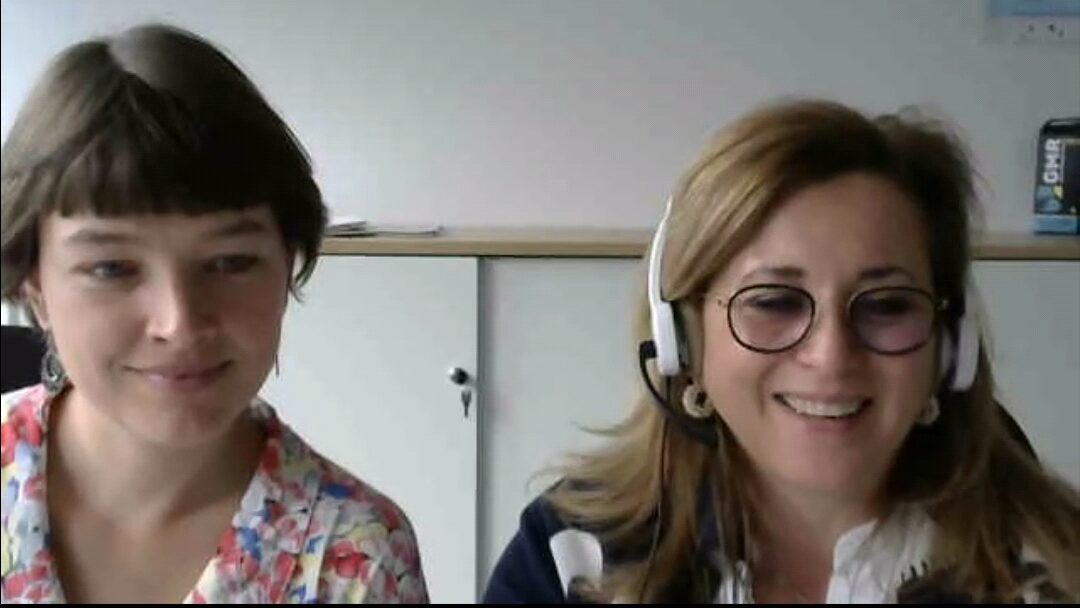
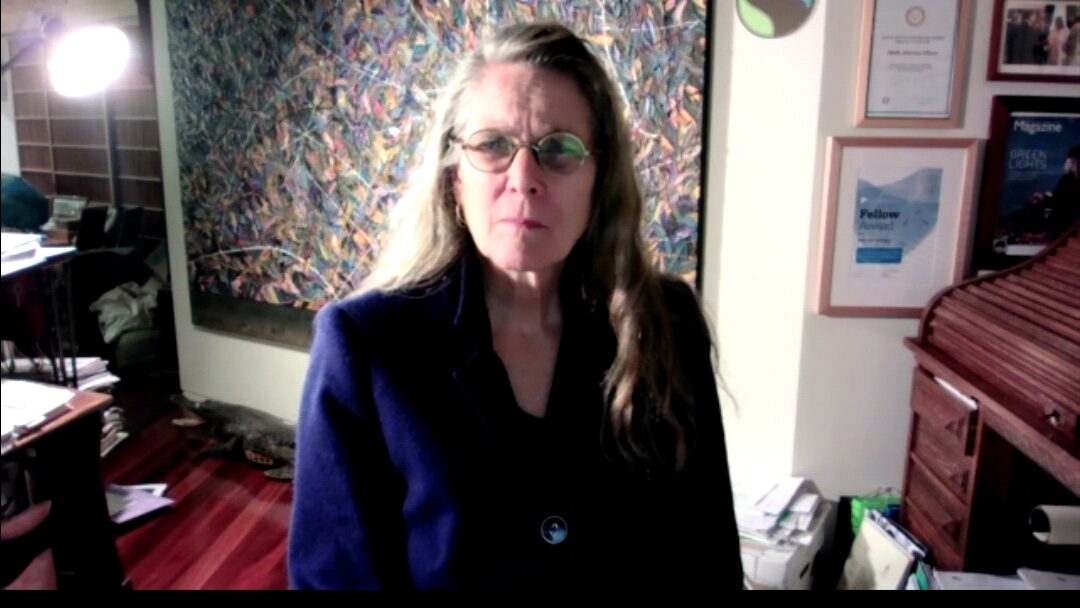


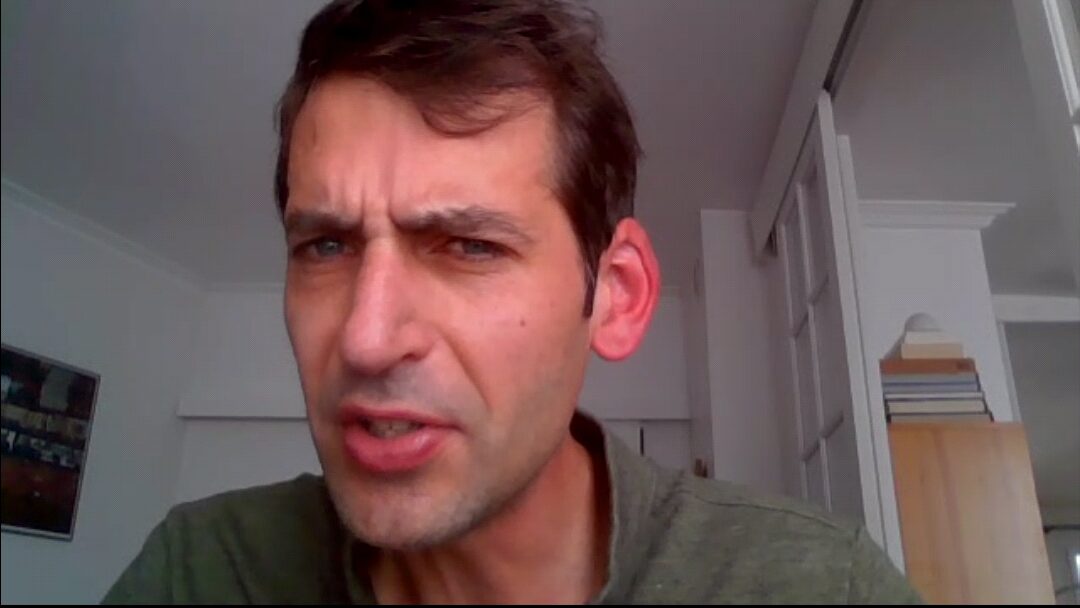
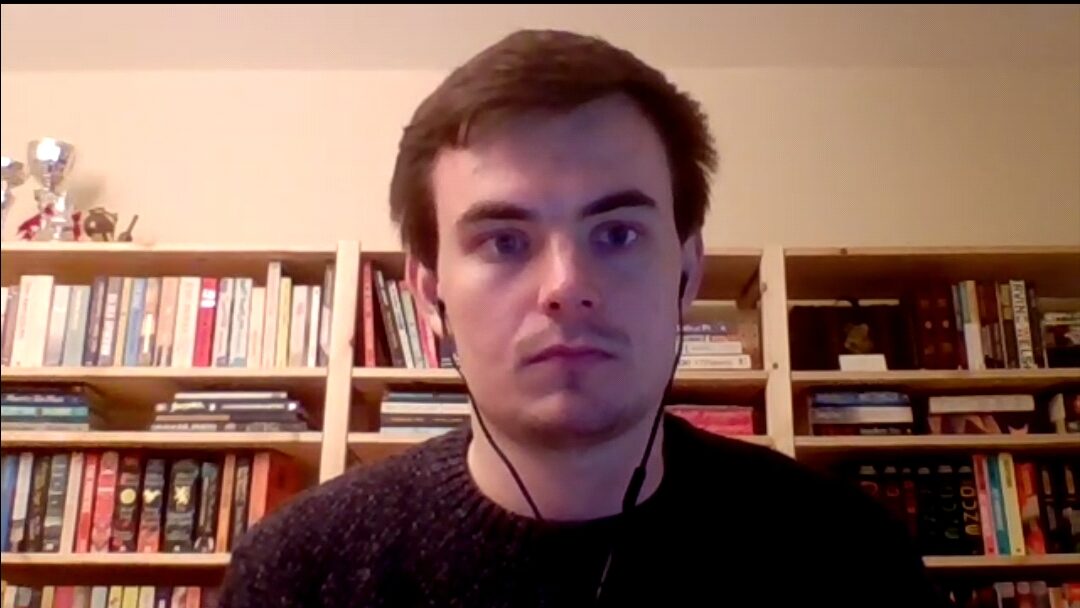
Session on Partnership and Funding and training on HREDD
The Day 01 session ended with a brief presentation from Bindu Sukumarapillai the Partnership and Advocacy Manager of NAPP on the ongoing and completed donor-funded projects in the region.
Post the presentation ‘An Offer To Business training in terms of Human Resources Environmental Due Diligence (HREDD)’ was facilitated by Sonia Dominica- Social Compliance and Risk Manager
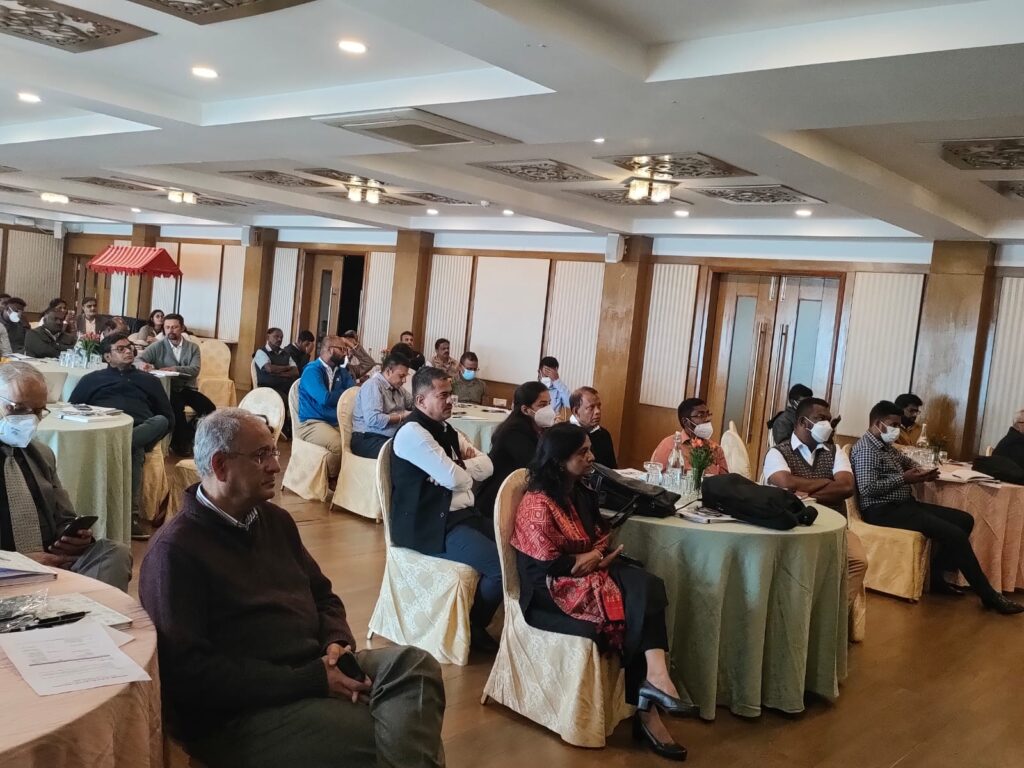
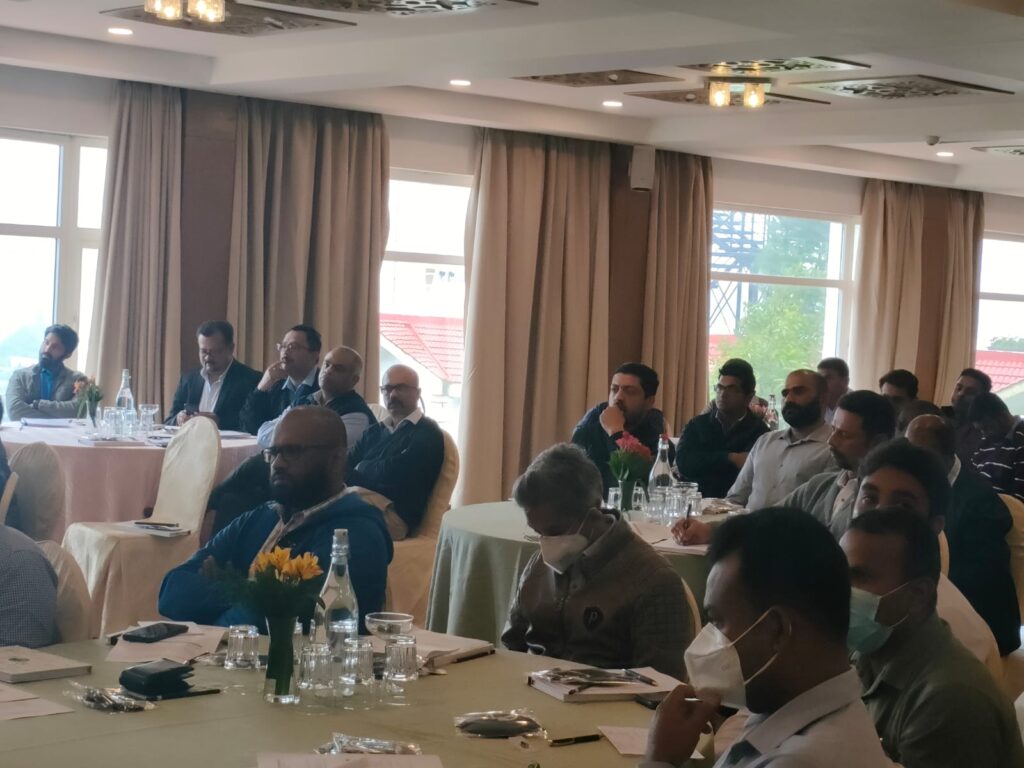
Day 02 Proceedings
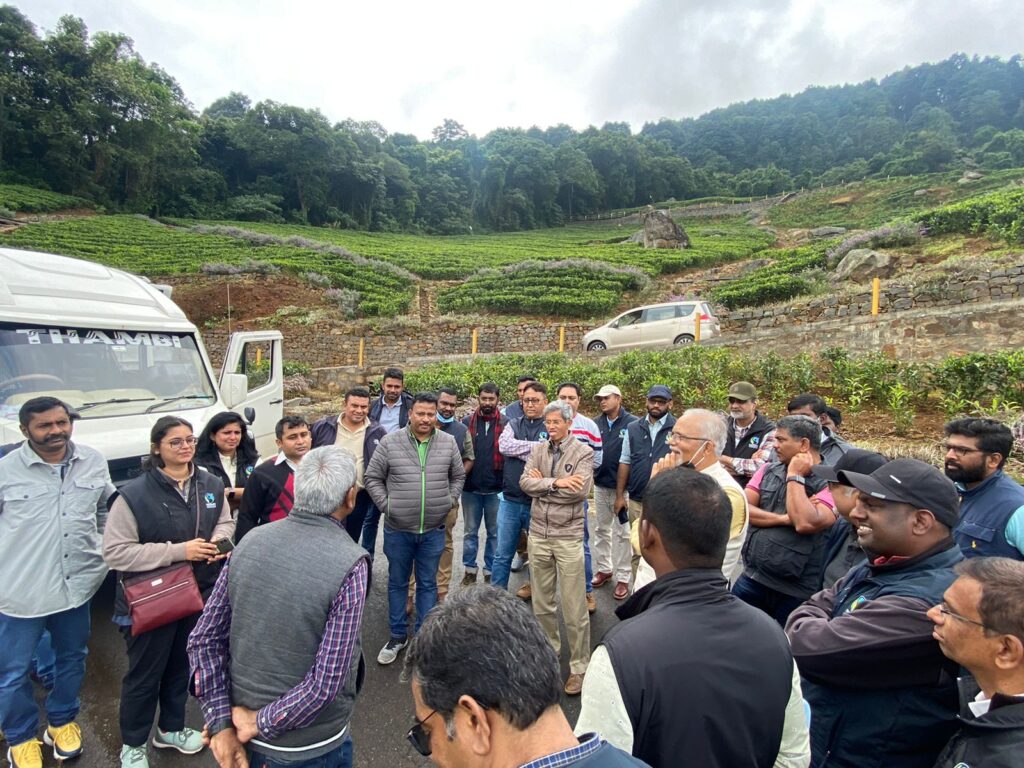
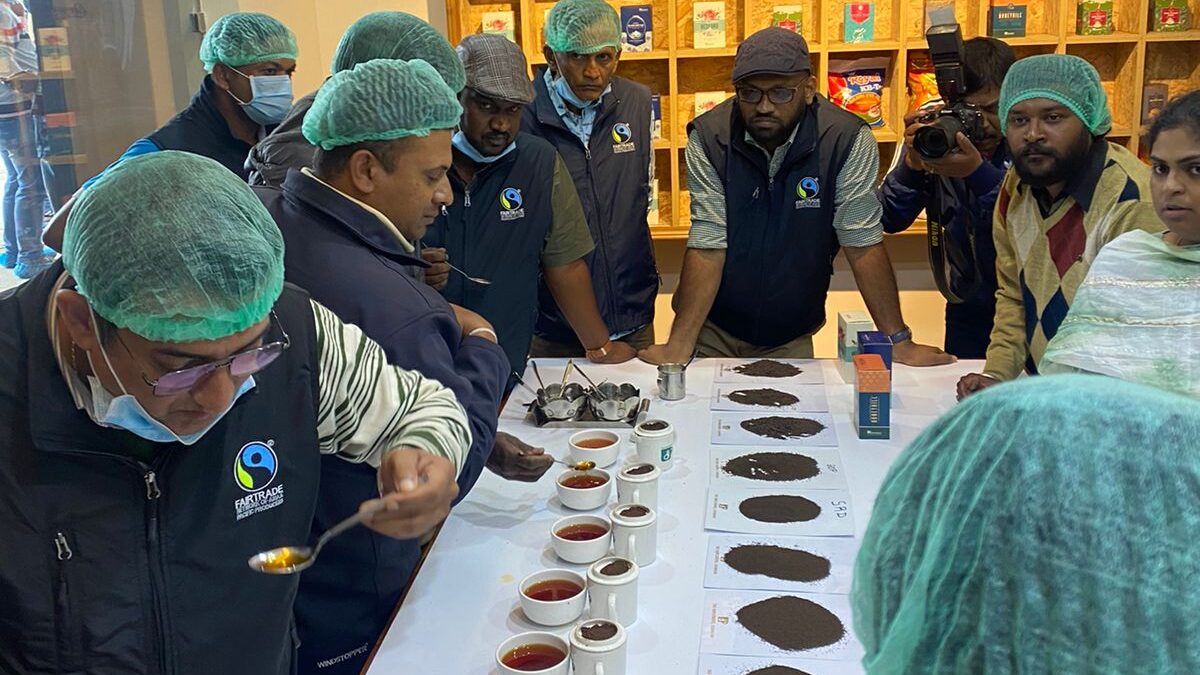
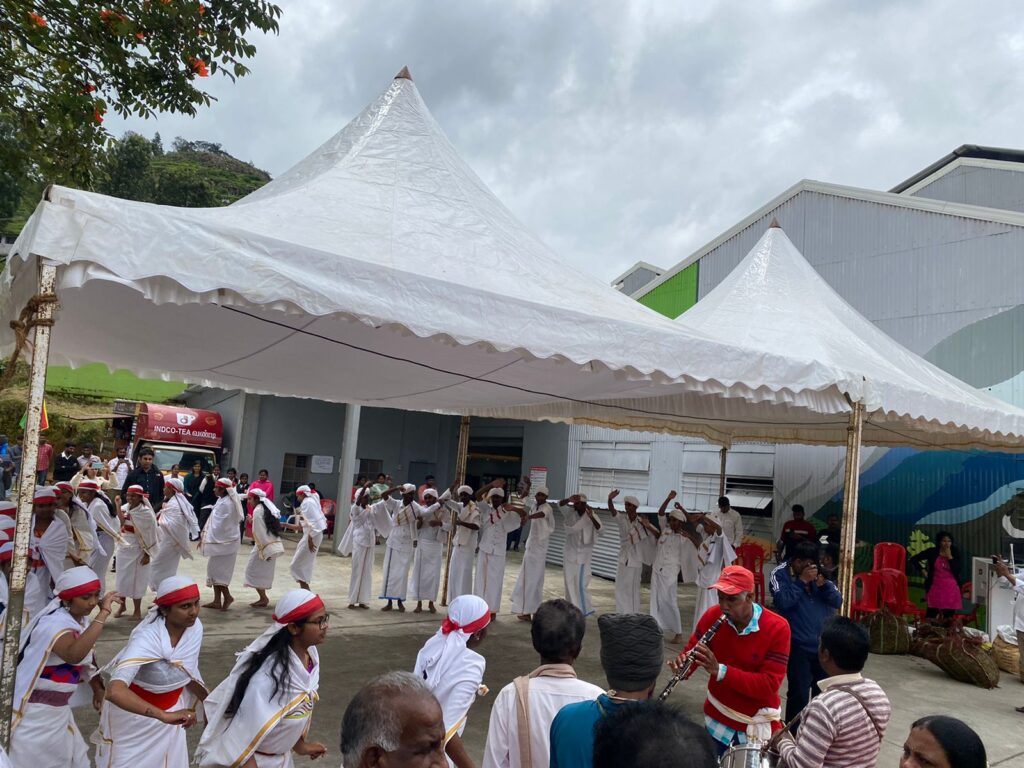
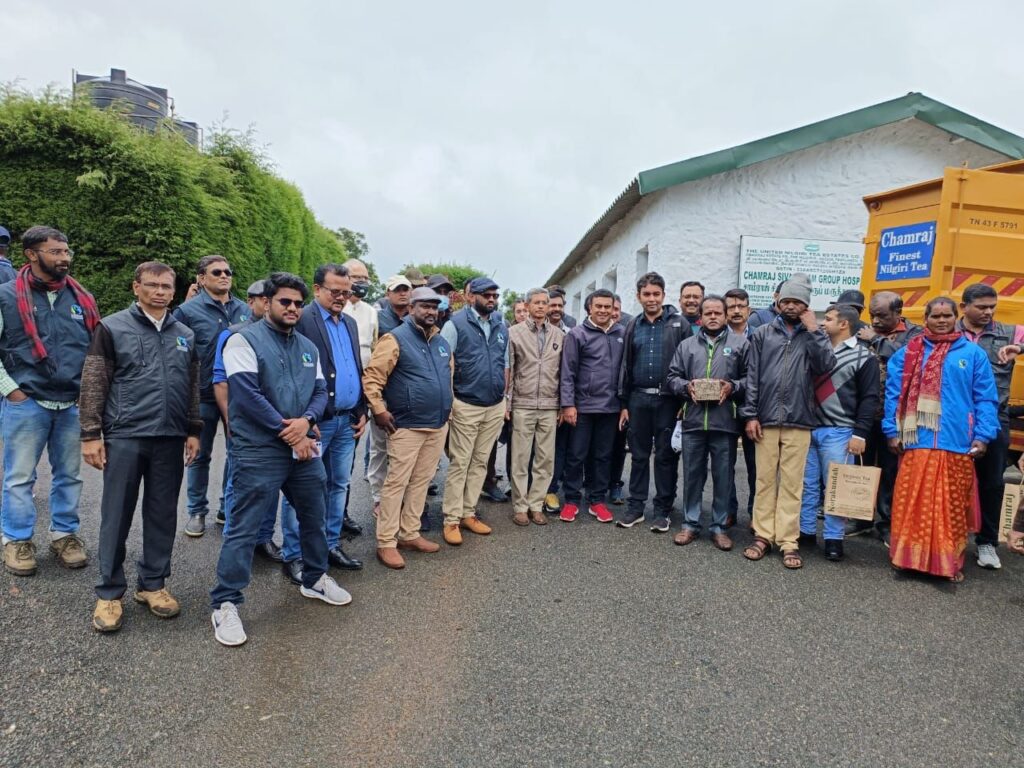
On the 2nd day the delegates were taken to 03 field visits:
1. Chamraj Tea Estate at Connor to showcase the best premium projects carried out by the organizations. The delegates were taken to the Primary education centres, Digital classrooms, Math and Physical labs, and a fully furnished Hospital which was funded by Fairtrade Premium.
2. Kattabettu Industrial Cooperative Tea Factory Limited (THE INDCOSERVE), at the Nilgiris to showcase innovative practices. The delegates observed the demonstration of the Green leaf quality machine and were taken around the Processing unit and a Tea tasting session.
3. Havukal Tea Estate belonging to Havukal Tea and Produce Company Pvt Limited to showcase modern tea cultivation practices. The delegates witnessed the best practices in biodiversity and the environment. A senior planter Surendra Mohan- General Manager contributed his expertise to explain all good practices in terms of Cultivation and the manufacturing process of the Estate. The organization has a rich heritage and history of sustainable and economically responsible practices to minimize the impact on its surroundings.



